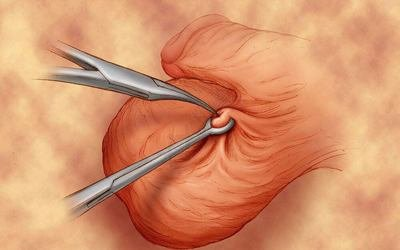How Does a Blocked Vas Deferens Happen? Seminal Vesiculitis May be One of the Causes
The seminal vesicles are one of the essential male reproductive organs. The primary function of the vas deferens is to transport mature sperms, and any obstruction at any point will affect the operation and discharge of sperms, thus causing male infertility. Since the seminal vesicles are connected to the vas deferens, we can't help but wonder if inflammation of the seminal vesicle tissue will lead to blockage of the vas deferens.

In fact, seminal vesiculitis can lead to a blocked vas deferens. If there is an inflammatory reaction in the affected area, coupled with the fact that the seminal vesicles are connected to both the ureter and the vas deferens, this may cause the inflammatory reaction to radiate to these areas, thus leading to the blockage of the vas deferens. Patients may experience clinically significant swelling and pain in the perineal area and may also experience painful ejaculation.
If left untreated, it may affect the urethra, and patients will experience clinically significant frequent urination, urinary urgency, and even burning pain in the urethra.
So, what can patients do about a blocked vas deferens due to seminal vesiculitis?
Actively treating seminal vesiculitis and controlling the inflammation, the edema at the mouth of the ejaculatory duct caused by inflammation and infection will disappear, and the vas deferens can return to normal patency.
Patients can take traditional Chinese medicine Diuretic and Anti-inflammatory Pill to cure seminal vesiculitis completely and prevent vas deferens blockage. It has the effect of clearing away heat and detoxifying the body, promoting blood circulation and removing blood stasis, invigorating blood circulation, boosting vitality and relieving pain, etc., which can comprehensively kill pathogenic bacteria, eliminate inflammation and infection, and prevent the recurrence of seminal vesiculitis.
Moreover, its effect of activating blood circulation and removing blood stasis can also promote blood circulation in the male genitourinary system, preventing congestion, edema, and adhesion, and thus preventing blockage of the vas deferens.
In addition to seminal vesiculitis, what other factors may lead to vas deferens blockage?
1. Congenital Factors
Due to abnormal embryonic development, the development of the vas deferens is abnormal. Commonly, there is congenital epididymal dysplasia; the epididymis is not connected to the testicles; there are also congenital absence of vas deferens, congenital atresia of vas deferens; there are also some congenital absence of ejaculatory ducts or congenital absence of spermathecae.
2. Genitourinary Infections
Commonly, genitourinary infections such as tuberculosis of epididymal vas deferens, prostatitis, and epididymitis will involve the vas deferens, causing a local inflammatory reaction, resulting in the proliferation of fibrous tissues and narrowing of the lumen of the ducts, which will ultimately lead to vas deferens obstruction. In addition, Mycobacterium tuberculosis infection or gonococcal infection can also cause inflammatory adhesion and obstruction of the vas deferens, thus leading to vasectomy.
3. Tumors
Tumors that develop in or around the vas deferens, including tumors of the epididymis, prostate, and seminal vesicles. As the tumor grows and develops, it can compress the vas deferens or obstruct the vas deferens.
4. Vasectomy
Some men resort to vasectomy as a contraception when they do not need to have children. However, they regret it due to certain factors and undergo a vasectomy to restore their fertility.
5. Medically Induced Injuries
Inguinal surgeries can cause varying degrees of vas deferens injury, including spermatic vein ligation, inguinal lymph node dissection, descending testicular fixation, and hiatal hernia surgery.
To summarize, the causes of vasectomy are various, and seminal vesiculitis may be one of the causes. If male patients experience these symptoms, they should promptly undergo the necessary tests for epididymal obstruction and then receive targeted treatment based on the underlying cause to prevent any impact on their fertility.
You may also be interested in:
Suspected Seminal Vesiculitis, What Department Should You Visit?
Will Seminal Vesiculitis Lead To a Smaller Testicle?
Is it Helpful for Patients with Seminal Vesiculitis to Massage Their Genitals Regularly?



